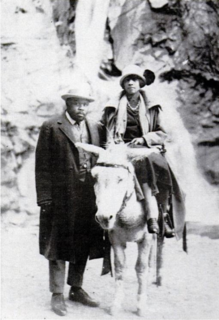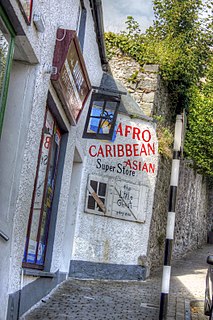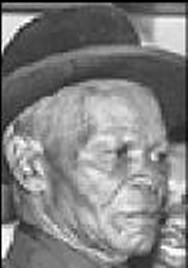Related Research Articles

Rastafari, also known as Rastafarianism and the Rastafari movement, is a religion that developed in Jamaica during the 1930s. It is classified as both a new religious movement and a social movement by scholars of religion. There is no central authority in control of the movement and much diversity exists among practitioners, who are known as Rastafari, Rastafarians, or Rastas.

Marcus Mosiah Garvey Sr. ONH was a Jamaican political activist, publisher, journalist, entrepreneur, and orator. He was the founder and first President-General of the Universal Negro Improvement Association and African Communities League, through which he declared himself Provisional President of Africa. Ideologically a black nationalist and Pan-Africanist, his ideas came to be known as Garveyism.
The Universal Negro Improvement Association and African Communities League (UNIA-ACL) is a black nationalist fraternal organization founded by Marcus Garvey, a Jamaican immigrant to the United States. The Pan-African organization enjoyed its greatest strength in the 1920s, and was influential prior to Garvey's deportation to Jamaica in 1927. After that its prestige and influence declined, but it had a strong influence on African-American history and development. The UNIA was said to be "unquestionably, the most influential anticolonial organization in Jamaica prior to 1938."

Garveyism is an aspect of black nationalism that refers to the economic, racial and political policies of UNIA-ACL founder Marcus Garvey. The ideology of Garveyism centers on the unification and empowerment of African-descended men, women and children under the banner of their collective African descent, and the repatriation of African slave descendants and profits to the African continent.

"Redemption Song" is a song by Bob Marley. It is the final track on Bob Marley and the Wailers' twelfth album, Uprising, produced by Chris Blackwell and released by Island Records. The song is considered one of Marley's greatest works. Some key lyrics derived from a speech given by the Pan-Africanist orator Marcus Garvey entitled "The Work That Has Been Done".

Henrietta Vinton Davis was an African-American elocutionist, dramatist, and impersonator. In addition to being "the premier actor of all nineteenth-century black performers on the dramatic stage", Davis was proclaimed by Marcus Garvey to be the "greatest woman of the Negro race today".

Amy Euphemia Jacques Garvey was the Jamaican-born second wife of Marcus Garvey, and a journalist and activist in her own right. She was one of the pioneering female black journalists and publishers of the 20th century.

Afro-Caribbean people or African-Caribbean people are Caribbean people who trace their full or partial ancestry to Africa. The majority of the modern Afro-Caribbeans descend from Africans taken as slaves to colonial Caribbean via the trans-Atlantic slave trade between the 15th and 19th centuries to work primarily on various sugar plantations and in domestic households. Other names for the ethnic group include Black Caribbean, Afro or Black West Indian or Afro or Black Antillean. The term Afro-Caribbean was not coined by Caribbean people themselves but was first used by European Americans in the late 1960s.

Brown's Town is one of the principal towns in St. Ann Parish, Jamaica. In 1991, its population was 6,762. The town is a market and road center in an agricultural region.
Amy Ashwood Garvey was a Jamaican Pan-Africanist activist. She was a director of the Black Star Line Steamship Corporation, and along with her former husband Marcus Garvey she founded the Negro World newspaper.

William Wellington Wellwood Grant OD was a Jamaican labour activist. He was known as "St. William Grant", "St." presumably meaning "Sergeant" in reference to his military or UNIA service.

Una Maud Victoria Marson was a Jamaican feminist, activist and writer, producing poems, plays and radio programmes.

Jamaica was an English colony from 1655, and a British Colony from 1707 until 1962, when it became independent. Jamaica became a Crown colony in 1866.
For a history of Afro-Caribbean people in the UK, see British African Caribbean community.

Black Cross Nurses is an international organization of nurses which was founded in 1920, based upon the model of the Red Cross. The organization was the women's auxiliary of the Universal Negro Improvement Association and African Communities League and was established to provide health services and education to people of African descent.
Wilfred Adolphus Domingo was a Jamaican activist and journalist who became the youngest editor of Marcus Garvey's newspaper, the Negro World. As an activist and writer, Domingo travelled to the United States advocating for Jamaican sovereignty as a leader of the African Blood Brotherhood and the Harlem branch of the Socialist Party.
Robert A. Hill is a Jamaican historian and academic who moved to the United States in the 1970s. He is Professor Emeritus of History and Research Professor at the University of California, Los Angeles (UCLA), and Visiting Fellow at The Sir Arthur Lewis Institute of Social and Economic Studies (SALISES), University of the West Indies at Mona, Jamaica. A leading scholar on Marcus Garvey, Hill has lectured and written widely on the Garvey movement, and has been editor-in-chief of The Marcus Garvey and Universal Negro Improvement Association Papers for more than 30 years. Reviewing the first volume in 1984, Eric Foner wrote: "'The Marcus Garvey and Universal Negro Improvement Association Papers' will take its place among the most important records of the Afro-American experience."

Maymie de Mena was an American-born activist who became one of the highest-ranking officers in the Universal Negro Improvement Association (UNIA). She has been credited with keeping the organization alive after Marcus Garvey's conviction for mail fraud and deportation from the United States.
Kid Harold was a dancer, singer, and vaudeville comedy routine performer in Jamaica. He was part of vaudeville performances including as part of the Harold and Trim duo in the 1920s.
Rastafari developed out of the legacy of the Atlantic slave trade, in which over ten million Africans were enslaved and transported to the Americas between the 16th and 19th centuries. Here, they were sold to European planters and forced to work on the plantations. Around a third of these transported Africans were relocated in the Caribbean, with under 700,000 being settled in Jamaica. In 1834, slavery in Jamaica was abolished after the British government passed the Slavery Abolition Act 1833. Racial prejudice nevertheless remained prevalent across Jamaican society. The overwhelming majority of Jamaica's legislative council was white throughout the 19th century, and those of African descent were treated as second-class citizens.
References
- 1 2 Belinda Edmondson (2009). Caribbean Middlebrow: Leisure Culture and the Middle Class . Cornell University Press. pp. 90–. ISBN 978-0-8014-4814-0.
- ↑ Balford Henry (August 17, 2017). "Bill coming to remove criminal records of heroes and freedom fighters". Jamaica Observer.
- ↑ Marcus Garvey (1983). The Marcus Garvey and Universal Negro Improvement Association Papers, Vol. VII: November 1927-August 1940. University of California Press. p. 341. ISBN 9780520072084.
- ↑ Diana Paton (2015). The Cultural Politics of Obeah. Cambridge University Press. p. 300. ISBN 9781107025653.
- ↑ Denise DeCaires Narain (2004). Contemporary Caribbean Women's Poetry: Making Style. Psychology Press. p. 69. ISBN 9780415340601.
| | This Jamaican biographical article is a stub. You can help Wikipedia by expanding it. |